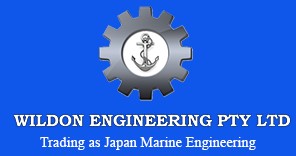Prevent Biofouling of Ships by Integrating Anti-fouling Systems
Blog | October 11th, 2022
Ships and boats are designed to reach various places through the water. And since the conditions present on bodies of water can be harsh for their components, these marine vessels are often incorporated and integrated with durable materials.
But despite the effort to make ships and boats safe from the elements, they can still be bombarded with tons of issues. One issue that these marine vessels may acquire is the existence of microorganisms and algae on their hull. You see, different parts of the water house a wide array of algae, plants, microorganisms, and animals. And as these marine vessels travel, their hull would be exposed to these things until biofouling is achieved.
A Quick Overview of Biofouling
Biofouling happens whenever invasive aquatic microorganisms, plants, and algae accumulate on ships and boats. The accumulation of these elements may also happen on devices like water inlets, pipe works, ponds, and grates.
For ships and boats, the build-up of these elements can be dangerous as they may reach other places and reproduce uncontrollably, which can then introduce a new set of problems to the new environment. As biofouling continues, the number of invasive species that can be found in new areas tends to increase yearly. This process can then impact the overall health condition of local microorganisms, plants, algae, and animals in the said areas.
Aside from aquatic species, biofouling can also affect humans as this process can ruin the operations of fisheries. It can even destabilise the economic performance of industries as the condition of the water gets worse. Biofouling can likewise decrease the speed of ships by up to 10%, forcing them to consume 40% more fuel than their normal range.
Integrating Anti-fouling Systems
Fortunately, biofouling can be prevented by integrating anti-fouling systems into ships and boats. Anti-fouling systems are elements that can be applied on ships to control, minimise, or prevent unwanted organisms from latching onto their surfaces. These systems can be in the form of a coating, paint, surface treatment, or device.
Aside from reducing the accumulation of unwanted organisms, these systems also ensure that the hull will remain smooth. In the long run, the application of anti-fouling systems can then protect the marine environment from harm that can be possibly caused by the invasion of unwanted organisms to new water areas.
Various types of anti-fouling systems can be used by ship owners. Some of them are as follows.
- Copper-Free Anti-fouling: This type of anti-fouling system utilises paint to harmlessly deter marine organisms from going near the hull.
- Hydrophobic Foul-Release Coatings: These coatings, alternatively, ensure that the marine organisms will be released conveniently without causing harm.
- Nano Anti-fouling: This anti-fouling system generates a slippery surface so that organisms will have difficulties sticking and latching onto the ships.
- Electrolytic System: This system maximises anodes to effectively release ions on the surroundings, helping it deter marine organisms from settling down on the ship surfaces. The anodes can also protect the ship surfaces from corrosion.
When choosing an anti-fouling system for your ship, you must consider its applicability, thickness, longevity, and cost. If you need one, you can contact us at Wildon Engineering.
Optimized by NetwizardSEO.com.au
Recent Posts
- Turbochargers Supply from Japan Marine: Wildon Engineering’s Excellence in Global Shipping
- Mitsubishi VOS Ballast Water Treatment System: Next-Generation Marine Environmental Solutions
- Yanmar Marine Compressors: Reliable Power Systems for Commercial Vessels
- Water-Lubricated Stern Tube Bearings Explained: How EVR Technology Supports Marine Propulsion
- YANMAR Auxiliary Generator Engine Parts for Commercial Vessels
- Fluid Control Systems: Innovations in Marine Applications
- Yanmar Diesel Generators Australian Distributor: Power for Shipping & Marine Operations
- Navigation & Communication Equipment: Essential Tools for Safe Voyages
- Stern Tube Seals: Preventing Leaks & Maintaining Vessel Integrity
- Innovative Cathodic Protection Technologies for Maritime Industries
